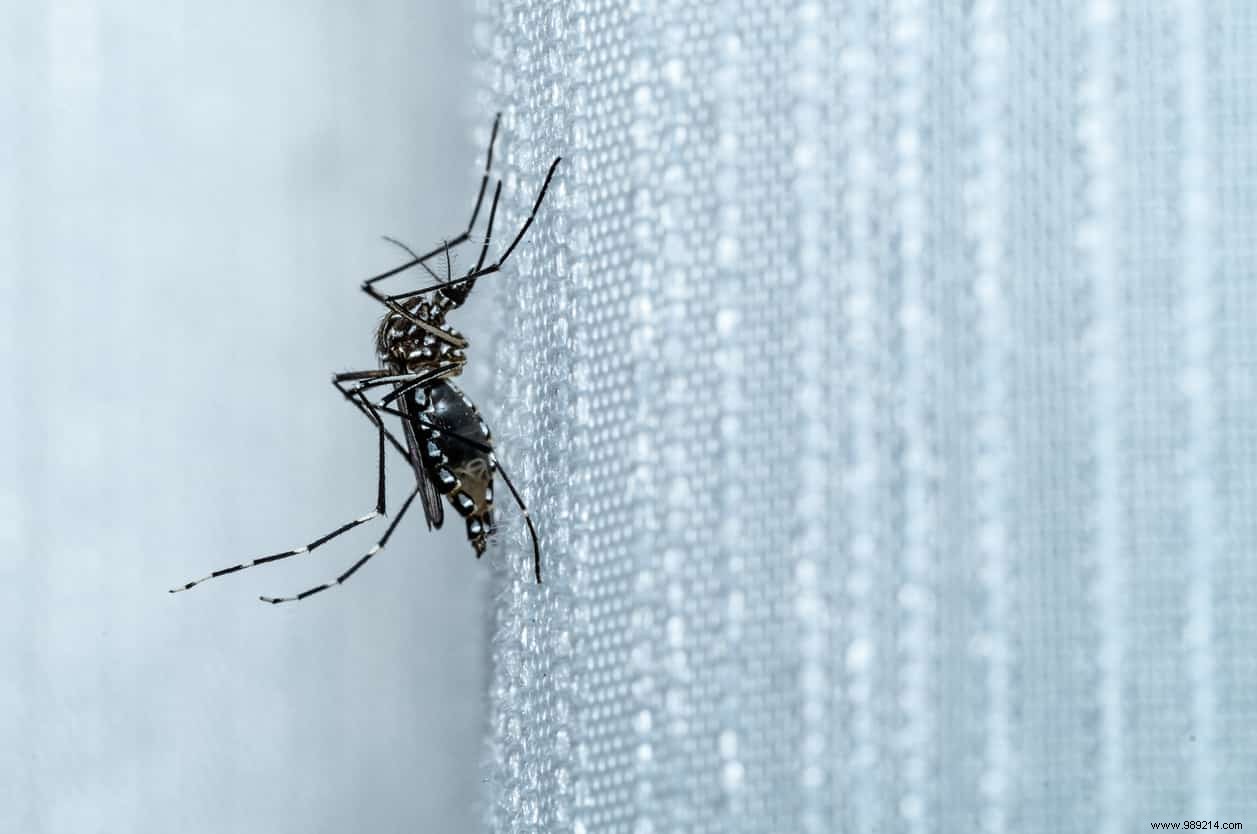While mosquitoes profusely bite all types of living beings, a study suggests that these insects are also attracted to certain colors related to human skin and the system circulatory. To what this new discovery could it be used?
Every summer, the same question arises for many of us:"Will I get eaten by mosquitoes again?" » In 2021, researchers even went so far as to explore the possibility of making humans "invisible" to these unpleasant insects. However, some people may benefit to varying degrees from a sort of natural immunity . Indeed, we know that mosquitoes are attracted by certain smells, by perspiration and have their preferences, especially in terms of blood group.
A study published in the journal Nature Communications on February 4, 2022 also brings something new. According to researchers from the State University of Washington in Seattle (USA), skin color can also influence behavior mosquitoes.
Mosquitoes were placed in boxes with dots and other shapes in different colors :blue, cyan, black, orange, red, green and purple. Normally, the insects didn't really react to the colors. In contrast, when the researchers injected CO2 into the boxes , the reactions were not long in coming. Remember that the CO2 that we exhale is a marker that mosquitoes recognize in order to identify their targets.

The results show that the mosquitoes reacted differently to the colors in the presence of CO2. If blue, green and purple do not cause any special reaction, cyan, orange, black and red attract mosquitoes. However, cyan has no connection with human skin unlike orange, black and especially red, the latter being related to our circulatory system . Let's remember the obvious:female insects suck our blood.
This research therefore testifies to a real discovery, because previously, we did not know that mosquitoes could be sensitive to the color of our skin. For scientists, the work could lead to the development of new protective systems and other pitfalls to better control these insects.
Finally, let's highlight the fact that the researchers used mosquitoes of the species Aedes aegypti . However, they can transmit many diseases, including dengue, chikungunya, the Zika virus or yellow fever. For specialists, this species represents one of the most important disease vectors transmissible in humans.